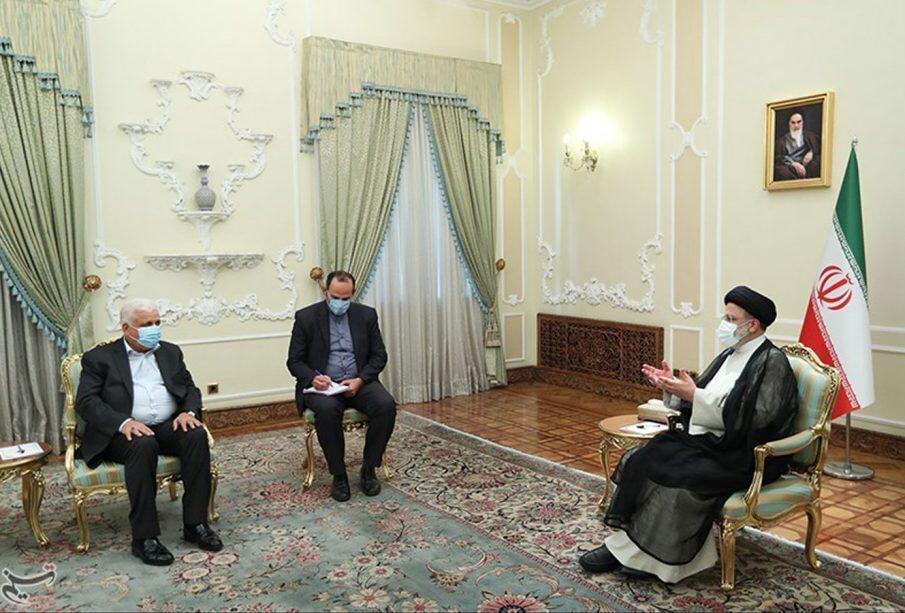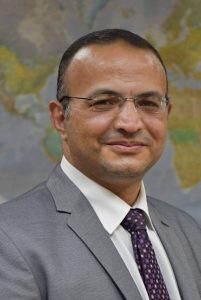The results of the latest round of Iraqi parliamentary elections showed a marked decline in the influence of political forces that are loyal to Iran. The “State of Law” coalition led by former Prime Minister Nouri Al-Maliki came in third place, while the Sadrist movement came in first place, and the “Progress” movement led by the outgoing Speaker of Parliament, Muhammad al-Halbousi, came second. There is now speculation on how Iran will respond to this situation, with some positing a possible replay of events in Lebanon, between 2006 and 2008, when the tension between the political forces grew, and Hezbollah took to the streets.
Iran has been steadfast in its efforts to reach a consensus among the Iraqi political forces on forming the new government, in a manner that would allow it to compensate for the electoral failure and preserve its influence. The commander of the Quds Force of the Revolutionary Guards, Esmail Qaani, is still making efforts in this regard. Preserving influence in the new government is crucial for Iran due to several considerations, including:
Deflecting pressure on pro-Iran Militias: The absence of pro-Iranian forces in the new government – or at least the decline in their influence – may provide an opportunity for those calling for the dissolution of the Loyal “El Hashd” Militias, affiliated with Iran, or disarming its members. This would be based on the argument that the mission for which the militia was established, supported by a fatwa issued by the supreme Shiite cleric Ali al-Sistani in 2014, ended with the Iraqi government’s announcement, on December 9, 2017, of the victory over ISIS. Iraqi government forces were thereby judged able to play their role in establishing security and stability and confronting the remnants of ISIS.
Confronting growing pressures to end foreign interference in Iraqi affairs: It is noteworthy that mounting political pressures on “Al Hashd” militia coincided with calls to form an Iraqi government able to adopt a foreign policy supporting the strengthening of Arab-Iraqi relations and bring an end to the use of Iraq as an arena to settle regional scores. The leader of the Sadrist movement, Muqtada al-Sadr, emphasized this demand, declaring on October 24, “We will seek to consolidate relations with neighboring countries that did not interfere in Iraq’s internal affairs, and we are working to find joint projects in the security, economic, cultural, health, educational and industrial fields, and on all levels,” adding that “ neighboring countries that have clearly interfered in Iraqi affairs, will be engaged through a high-level dialogue to prevent further interference. If they respond, this is a welcomed result, if they do not, we will resort to diplomatic and international means to prevent (further interference).”
It must be noted that al-Sadr has adopted Iranian positions in some situations and has been keen to establish relations with senior leaders in Tehran and visits Qom regularly. But at the same time, he insists on maintaining a distance from the forces loyal to Iran inside Iraq. It is within this context that his warnings to some countries, meaning Iran and Turkey, that he may resort to “scaling back economic and diplomatic dealings”, and may adopt other “strict measures”, should be understood.
Avoiding regional contagion: Tehran does not wish to see a repetition of these electoral losses in other countries, particularly in Lebanon where parliamentary elections are due to be held in March 2022. There is currently a high level of political tensions and polarization in Lebanon, which the formation of a new government headed by Najib Mikati on September 10 did not bring to an end. Iran fears that these political tensions, in which Hezbollah is a major actor, may have a high political cost, considering ongoing criticisms in Lebanon regarding the consequences of Hezbollah support of Iran’s policy in Iraq, Syria and Yemen. Hezbollah was the part that defended the entry of Iranian fuel shipments to Lebanon, and its Secretary-General Hassan Nasrallah, on October 22, implied that the organization has undertaken major services that are usually performed by the state, and thus has political influence at home and regional backer abroad. This, in his view, places considerable obstacles in the path of attempts to marginalize Hezbollah or weaken its role.
Preventing the consolidation of opposition stances: Tehran believes that a loss of influence by its Iraqi allies in the new government will indicate that the demands of the popular protests that erupted in Iraq in October 2019 have been heeded and have in fact achieved tangible results through the elections. Not only have some candidates put forth by the forces participating in the so-called “Tishreen movement” won, but the forces loyal to Tehran now have less representation in the new parliament. Some of the forces that participated in the popular protests held Iran its affiliated militias partially responsible for deteriorating economic, social and security conditions, as well as for the violence suffered by the demonstrators during the protests. The discontent with the Iranian presence was evident when demonstrators during the protests burned down some buildings associated with Iranian interests and pro Iran forces.
Preparing for possible regional escalation: Tehran is closely anticipating the security arrangements reached by the United States of America and Iraq in preparation for reducing the number of American forces in Iraq and shifting its role to providing support and advice to the Iraqi forces. Iran is seeking to exploit this to strengthen its presence inside Iraq on all levels. Without a doubt, Tehran will face obstacles in this respect if pro Iran forces do not have strong influence within the next government. Iran also does not rule out the continuation of escalation at the regional level with the US and Israel, regardless of the outcome of the Vienna negotiations on the nuclear agreement.
This was evident in the accusations leveled by US officials, on October 26, against Tehran for supporting the attacks on the Al-Tanf military base in Syria five days earlier by drones. Accusations that may pave the way for US military strikes on sites belonging to Iran or pro Iran militias in Iraq and Syria in the near future.
In conclusion, the region appears to be on the cusp of a new phase that may witness a renewed escalation, due to continuing differences among regional and international powers with regards to complex and interlinked issues, particularly with respect to countries undergoing significant crises.


